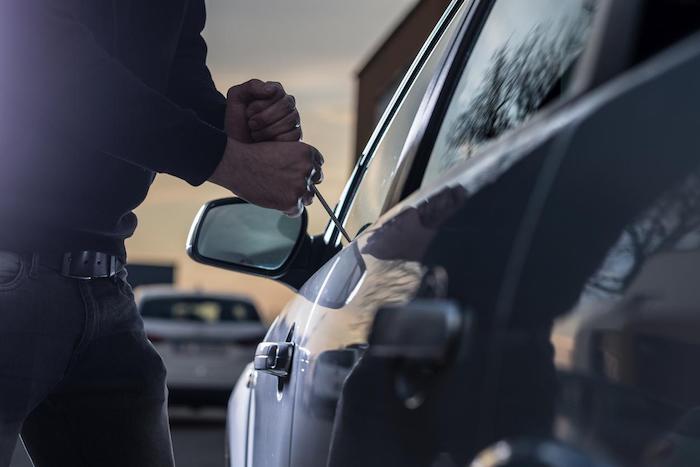Theft related damages all go under comprehensive coverage. Comprehensive coverage pays to repair or replace an insured car that’s stolen or damaged by something other than a collision. The main types of comprehensive claims are damages caused by fire, wind, hail, flood, theft, vandalism, or a falling object.
When a theft breaks into a car, they are typically looking to steal personal items more than physically attached items inside the car. For example, a theft will steal a backpack more than the steering wheel. The item being physically attached to the car is extremely important. The most common physically attached items stolen from a car are steering wheels, airbags, and stereo equipment. Your insurance carrier will cover physically attached items and any other physical damage to the car resulted from the break-in.
The most common personal items stolen in a theft claim are purses, backpacks, laptops, and/ or sunglasses. Unfortunately, personal items are often not included or capped at a fixed small amount of $100 or $200 within the definition of comprehensive coverage by most insurance carriers. This aspect of comprehensive coverage differs greatly carrier to carrier. The best source of information on this aspect of comprehensive coverage will be located in your insurance binder to review the “Terms and Definitions”. The binder is typically a small booklet given to you when you purchase the policy. Most car insurance carriers will advise personal items are not covered and will state personal items will under homeowners or renters insurance.
Filing A Homeowners Claim
Before filing homeowners or renters insurance claim you should review your policy. Most homeowners or renters insurance policies carry a $1,000 deductible for personal property. And the homeowners insurance industry is starting to bump deductibles to $2,500 as the new norm. So if your $100 sunglasses and $200 purse were stolen, filing a homeowners or renters insurance claim will result with more lost time and additional anger.
If the items taken were extremely valuable, say over $3,000 you may want to open a homeowners or renters insurance claim to seek partial recovery. However, the bad news continues. Homeowners or renters insurance are quoted and rated differently than car insurance. They factor the property they insure more heavily than the insurer…that’s you. Homeowners or renters insurance rates are mostly based on the number of claims vs liable at-fault claims for with car insurance. So despite none of this being your fault, your homeowners or renters insurance rates will increase the following year. I have nothing but bad news now; the rate increase will likely hold for a minimum of three years and can last up to seven years.
So for example, your stolen personal belongings valued $3,000, your deductible is $1,000, and you were likely able to recover $2,000. If your homeowners insurance policy premium was $800 per year before the claim payout, the following year the premium will increase and it will likely surpass $1,000 per year. So if it holds steady over $1,000 for the next seven years your true net recovery will be less than $500. But you’re still in the positive…well, maybe. If a second claim is opened on your homeowners or renters insurance policy within three years, most insurance carriers will consider you a high-risk policy. Multiple losses within a few years will sky-rocket your rates and/or they will not want to renewal your policy. This severity of rate increase doesn’t hit the wallet as hard on renters insurance as the premium for renters insurance is much cheaper than home insurance. So proceeding with the claim on a renters insurance policy makes financial sense.
If you are considering filing a homeowners claim, speak to your insurance agent. The agent will not be able to give you a pin-point amount your premium will increase but they look at premiums every day. They have a trained eye and can guesstimate how much your premium will be after the claim is paid. The most common reason why people switch insurance carriers is when rates increase. Your agent will not want you to switch insurance carriers as they are making money off your policy via a residue.
The best tip, hide all valuable belongings at all times inside your car. Thefts typically target easy cars. Even if you leave your car for a few minutes, it only takes 30 seconds for a theft to smash a window and grab your purse sitting on the passenger seat. Always remember, “Out of sight, out of mind.”

